Computer Science News
MRC funding success for Dr Yulia Timofeeva
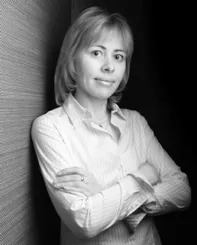 We are happy to announce that Dr Yulia Timofeeva from the department's Applied Computing research theme has been awarded a Medical Research Council grant to develop a modelling framework and computational tools for studying synaptic transmitter release in health and disease. The £475K project will run in close collaboration with the laboratory of Professor Kirill Volynski at the UCL Queen Square Institute of Neurology as well as other world-leading experimental laboratories in Europe, USA, Canada and Japan, specialising in state-of-the-art research in synaptic transmission.
We are happy to announce that Dr Yulia Timofeeva from the department's Applied Computing research theme has been awarded a Medical Research Council grant to develop a modelling framework and computational tools for studying synaptic transmitter release in health and disease. The £475K project will run in close collaboration with the laboratory of Professor Kirill Volynski at the UCL Queen Square Institute of Neurology as well as other world-leading experimental laboratories in Europe, USA, Canada and Japan, specialising in state-of-the-art research in synaptic transmission.
EPSRC funding success for Dr Sayan Bhattacharya
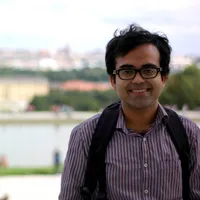 We are pleased to report that Dr Sayan Bhattacharya from the Theory and Foundations research theme at the Computer Science Department has received an EPSRC New Investigator Award. This will allow him to lead a research project on the theory and applications of dynamic algorithms. The approximately £250K project will aim to develop new techniques to design algorithms for fundamental optimisation problems in a setting where the input data changes over time.
We are pleased to report that Dr Sayan Bhattacharya from the Theory and Foundations research theme at the Computer Science Department has received an EPSRC New Investigator Award. This will allow him to lead a research project on the theory and applications of dynamic algorithms. The approximately £250K project will aim to develop new techniques to design algorithms for fundamental optimisation problems in a setting where the input data changes over time.
The proposal was ranked top at its funding prioritisation panel, and the reviewers said:
The intended research explorations are of very high quality and will likely make a substantial impact on the research community; and possibly on the industrial sector.
Seven papers accepted to the 31st SODA
 We are pleased to report that members of the department's Theory and Foundations research theme have had 7 papers accepted to the 31st Annual ACM-SIAM Symposium on Discrete Algorithms, to be held in Salt Lake City, Utah, USA, January 5-8, 2020. SODA is the premier international conference on algorithms research, and the papers are:
We are pleased to report that members of the department's Theory and Foundations research theme have had 7 papers accepted to the 31st Annual ACM-SIAM Symposium on Discrete Algorithms, to be held in Salt Lake City, Utah, USA, January 5-8, 2020. SODA is the premier international conference on algorithms research, and the papers are:
- Parameterized Complexity and Approximability of Directed Odd Cycle Transversal by M. S. Ramanujan, Daniel Lokshtanov, Saket Saurabh, Meirav Zehavi
- An Improved Algorithm for Incremental Cycle Detection and Topological Ordering in Sparse Graphs by Sayan Bhattacharya, Janardhan Kulkarni
- Coarse-Grained Complexity for Dynamic Algorithms by Sayan Bhattacharya, Danupon Nanongkai, Thatchaphol Saranurak
- Combinatorial Generation via Permutation Languages by Elizabeth Hartung, Hung P. Hoang, Torsten Mütze, Aaron Williams
- On the Power of Relaxed Local Decoding Algorithms by Tom Gur, Oded Lachish
- Relaxed Locally Correctable Codes with Nearly-Linear Block Length and Constant Query Complexity by Alessandro Chiesa, Tom Gur, Igor Shinkar
- Sublinear time approximation of the cost of a metric k-nearest neighbor graph by Artur Czumaj, Christian Sohler
UKRI Future Leaders Fellowship awarded to Dr Tom Gur
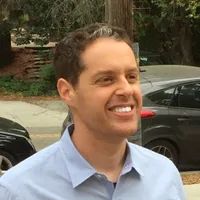 We are delighted to report that Dr Tom Gur has been awarded a Future Leaders Fellowship on Foundations of classical and quantum verifiable computing, funded by £892K from UK Research and Innovation. Professor Artur Czumaj, the head of the department's Theory and Foundations research theme, has commented:
We are delighted to report that Dr Tom Gur has been awarded a Future Leaders Fellowship on Foundations of classical and quantum verifiable computing, funded by £892K from UK Research and Innovation. Professor Artur Czumaj, the head of the department's Theory and Foundations research theme, has commented:
We congratulate Tom and look forward to hosting this exciting project that he will lead. This prestigious award confirms the high international standing of research at Warwick in theoretical computer science and its rich interfaces with other fields.
Tom’s Future Leaders Fellowship is concerned with algorithms and cryptographic protocols, both in the classical and quantum settings, and their applications to blockchain technology and delegation of computation to the cloud. This research programme is inherently interdisciplinary, involving fundamental research at the intersection of computer science, pure mathematics, and quantum physics.
The vision that this project aims to achieve is to develop new and exciting mathematical tools and to capitalise on their power to the end of pushing the frontiers of verifiable computing; providing new methodologies for meeting the challenges imposed by big data and the societal need for decentralised systems.
Warwick and Alan Turing Institute partnership brings Data Science for Social Good Fellowship to the UK this summer
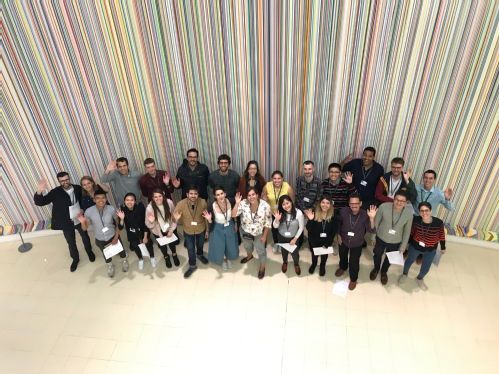
This year's Data Science for Social Good (DSSG) Fellowship programme is being held in the UK for the first time. The University of Warwick is hosting the Fellowships this summer in conjunction with the Alan Turing Institute. The 2019 programme is running from June 10 to August 28.
The Fellowship is a project-based training programme to supply data scientists with skills to create data-driven solutions to real-world problems. It trains aspiring data scientists to work on data mining, machine learning, big data and data science projects with social impact.
It was first pioneered by the University of Chicago, and since 2013 has seen more than 200 graduate and undergraduate students studying computer science, social sciences, statistics, public policy and other quantitative fields undertaking a DSSG Fellowship at the University of Chicago.
The Alan Turing Institute’s vision to advance research for public good and train the next generation of leaders is directly aligned with DSSG’s own goal to produce data scientists with strong skills in solving real-world problems.
Fellows work with non-profit and government partners around the world. To date, more than 60 projects have run, which have helped lots of organisations do more with their data, enhancing their services, interventions and outreach so that they can fulfil their mission of improving lives across the world.
Further details on the fellowship can be found here.
Warwick lead the first verifiable e-voting trial in the UK
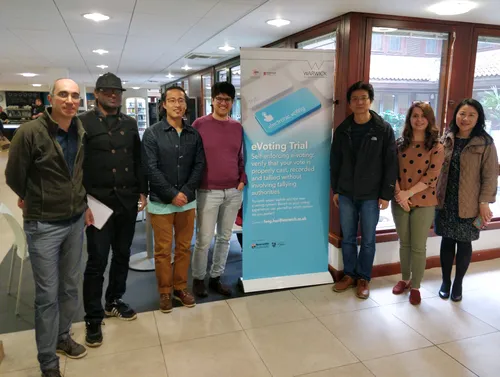
Researchers from the Department of Computer Science, University of Warwick, joined by colleagues from Newcastle University and the University of York, led the first successful trial of an end-to-end verifiable e-voting system for polling station voting in Gateshead, Newcastle during the local elections on 2 May 2019. This trial was supported by the electoral service officials at the Gateshead council and was approved by the University of Warwick’s research ethics committee.
This is the first trial of a fully electronic voting system with end-to-end (E2E) verifiability for polling station voting in the UK. Being E2E verifiable, the system allows voters to independently verify if their votes are cast-as-intended, recorded-as-cast and tallied-as-recorded while preserving their privacy. By contrast, with paper ballots, voters must trust other people to record and tally their votes correctly, but they cannot verify this by themselves. The trialled e-voting system is the research outcome of an ERC starting grant, led by Professor Feng Hao from the Department of Computer Science. The prototype was developed under the support by Innovate UK and the trial was sponsored by the Royal Society.
On the election day, voters went to the Gateshead civic centre polling station to vote on paper ballots as usual. Upon exit from the polling station, they were invited to try a touch-screen based e-voting system for a mock election involving a set of dummy candidates. Voters were then provided with an anonymous survey form to indicate based on their voting experience, which of the two voting systems did they prefer. Nearly half of the voters at the Gateshead civic center polling station participated in this trial and provided many useful feedbacks. From the survey results, voters generally found the trialed e-voting system easy to use, and preferred it to paper ballots.
From Gateshead Council News, this is "a new system that could completely revolutionise the elections system". The Gateshead trial is also covered in the BBC News, University Press Releases, Webroots democracy, Government Business, Gizmodo, and ChronicalLive. A video demonstration of the trialled e-voting system is available on YouTube.
Best Paper Award at STOC 2019
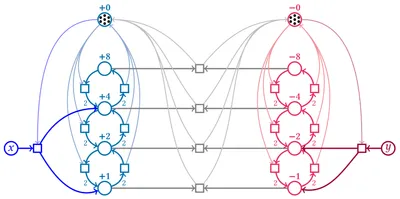 The contribution The Reachability Problem for Petri Nets is Not Elementary by Wojciech Czerwinski, Slawomir Lasota, Ranko Lazic, Jerome Leroux and Filip Mazowiecki has won a Best Paper Award at the 51st Annual ACM Symposium on the Theory of Computing, to be held on June 23-26, 2019 in Phoenix, AZ.
The contribution The Reachability Problem for Petri Nets is Not Elementary by Wojciech Czerwinski, Slawomir Lasota, Ranko Lazic, Jerome Leroux and Filip Mazowiecki has won a Best Paper Award at the 51st Annual ACM Symposium on the Theory of Computing, to be held on June 23-26, 2019 in Phoenix, AZ.
This work, which was supported by a Leverhulme Research Fellowship, shows that the central verification problem for Petri nets is much harder than has been known since the landmark result of Richard Lipton in 1976. Petri nets, also known as vector addition systems, are a long established model of concurrency with extensive applications in modelling and analysis of hardware, software and database systems, as well as chemical, biological and business processes.
